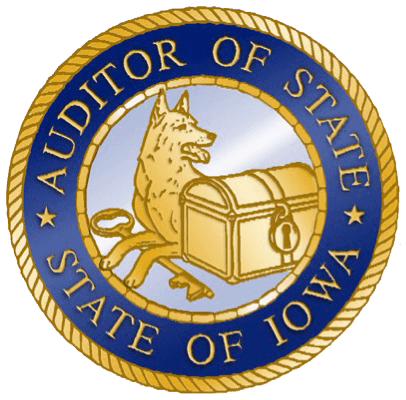(Des Moines, Iowa)- Iowa’s Auditor of State Rob Sand today (Wednesday) released a report on a special investigation of the City of Hamburg for the period of March 1, 2019 through August 31, 2023. The special investigation was requested by Iowa Economic Development Authority (IEDA) and Homeland Security and Emergency Management Department (HSEMD) as a result of concerns communicated to the Department’s regarding certain grant funds and a forgivable loan received by the City following the March 2019 flood. Concerns were also received regarding City officials, City employees, and their family members and friends receiving direct benefit from the funds awarded to the City.
Sand reported the special investigation identified the following, with regard to the Nuisance Property and Abandoned Building Remediation Loan Program:
• The City did not enter into an agreement with Hamburg Economic Development Council (HEDC) to administer the Nuisance Property and Abandoned Building Remediation Loan Program.
• City officials were unable to provide supporting documents showing the properties acquired under the program were nuisance properties as defined by the Code of Iowa or under the terms of the program. HEDC officials stated that properties were identified by physically driving through the community and selecting lots that would have been favorable for potential buyers.
• Under the program, 6 properties were purchased by HEDC and not the City. However, HEDC was not a party to the grant between the Iowa Economic Development Authority and the City of Hamburg.
• The City provided funding under the program to build two new homes. One home was owned by a City Council member who transferred ownership to a family member. The second home was privately owned. The owner was not related to a member of City government. City officials were unable to provide any support why NPAB funds were used on lots that were not cleared or owned by the City. 
• The program allows funds to be used for construction for City owned homes. If the funds are used for projects owned by private citizens, the homeowners are to repay the funds to the City. Under the program the city paid 60% of the construction costs for two privately owned homes. Sand’s office could not determine why the homeowners did not repay the funds to the City as required by the program. For the two homes the construction costs paid by the grant were $86,730.00 and $104,576.50.
• For the two homes constructed there is no evidence the owners repaid any portion of the funds provided under the program.
Sand reported the special investigation identified the following with the Community Catalyst Building Remediation Grant Program:
• The City did not enter into an agreement with Hamburg Economic Development Council (HEDC) to administer the Community Catalyst Building Remediation Grant Program awarded to the City.
• Under the terms of the program, if the building is owned by an entity other than the city, the respective city must provide information regarding ownership and the relationship with the City. The City did not disclose a City Council member was negotiating ownership of 2 buildings which received funding.
• The city was unable to provide support showing two applicants provided the required match in the form of financial or in-kind assistance.
• The city violated Iowa Code 234.7, by quit claiming a deed to a property owned by the City to an applicant who received funding under the program. Under the Code of Iowa, the City should have published a notice on the date a public hearing was to be held regarding the sale. The Code also prohibits the disposal of real property by gift, except to a governmental body for public purpose.
Other issues
• The City made a duplicate payment to HEDC totaling $50,000.00 that was not authorized or explained.
o The duplicate payment was issued on April 29, 2020 for $50,000.00 for the Catalyst Grant. The $50,000.00 was previously paid on February 13, 2020.
• HEDC cashed and deposited donation checks expressly written out to the City totaling $23,690.17.
Sand also reported several familial relationships were identified between recipients of Nuisance/Abandoned Property Remediation Fund (NPAB) funds and City Council member, Kent Benefiel, and the City’s public works director, Alan Dovel. Sand reported that the Community Catalyst Building Remediation Grant Program (Catalyst grant) was facilitated by HEDC, even though there was a prohibition on the transfer or reassignment of the grant funds in the agreement between the City and IEDA. Mr. Benefiel applied for catalyst grant funds related to two properties on Main Street and received the largest share of the catalyst grant funds.
Copies of the report have been filed with the Iowa Division of Criminal Investigation, the Fremont County Attorney’s Office, the Fremont County Sheriff’s Office, and the Attorney General’s Office. A copy of the report is available for review on the Auditor of State’s website at Special Interest Reports.










